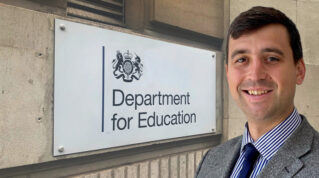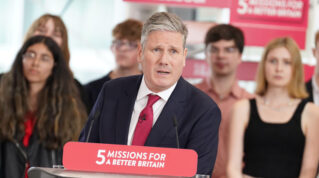The Labour party has announced its ‘Five missions for a better Britain’, and I welcome its emphasis on reforming education to ensure all children and young people develop the skills they need to succeed in an increasingly complex and globalised workplace.
As an international baccalaureate (IB) educator for more than 30 years, I firmly believe that the four IB programmes are the answer the Labour party is looking for when it comes to overhauling the national curriculum.
A broad curriculum
Labour’s focus on delivering a broad and balanced curriculum which ensures students have the opportunity to develop core literacy and numeracy skills as well as study the arts and languages is perfectly encapsulated by the IB.
For instance, its middle years programme (MYP) is organised into eight subject groups to enable students to engage with all the subjects, ensuring that their key stage 3 experience has breadth, balance and rigour.
Post-16, IB students are not restricted to three or four subjects. In fact, the IB diploma programme (DP) lets students choose courses from six subject areas. This enables them to tailor their programme to their strengths and interests while continuing to develop the essential skills that will support their transition into the global workforce, including a language and mathematics.
Skills for work and life
Labour’s manifesto notes that young people are being held back from academic and career progression by an inability to express themselves clearly. Supporting students to gain the competencies prioritised by universities and employers such as communication, critical thinking and communication is central to the party’s vision for a better Britain.
Oracy skills are embedded into the IB’s curricula, with students engaging in structured classroom discussions and debates. Through consistent oral communication, students learn to express themselves and challenge ideas, think critically and grow in confidence – all of which help them succeed beyond the classroom.
Contextualised learning
As well as identifying the importance of core skills that young people need to thrive in life, the Labour party has understood the need for a curriculum that reflects the issues and diverse nature of today’s society.
That’s one of the things we, as IB educators, most value about the IB programmes – students are not just learning English or mathematics; they are understanding their subject in the context of societal issues and values. Students explore the ethical and social implications and historical context, which requires a deeper understanding of the subject material, group discussion in the classroom, learning from their peers and teamwork – all of which will set them up for success in the workplace of the future.
Ongoing assessment
The creation of an assessment system that reflects the breadth of the curriculum and students’ skills evolution is another focal point of the Labour party’s vision. Assessing skills and knowledge acquisition throughout the course of a student’s learning journey is far more beneficial than a set of examinations at the end of their journey.
From a portfolio that evidences community work to the theory of knowledge (ToK) exhibition to the extended essay which demonstrates students’ analysis, evaluation and research skills, the DP draws on a number of internal and external assessment methods (including summative examinations) throughout the two-year programme.
Labour’s suggestions for the education agenda are welcome. However, overhauling the national curriculum to deliver this promise is a costly and time-consuming use of already limited resources in an over-stretched sector.
Why create a new education programme when the globally recognised IB frameworks have been proven to help students gain the skills they need to be future-ready for more than 50 years?









Your thoughts